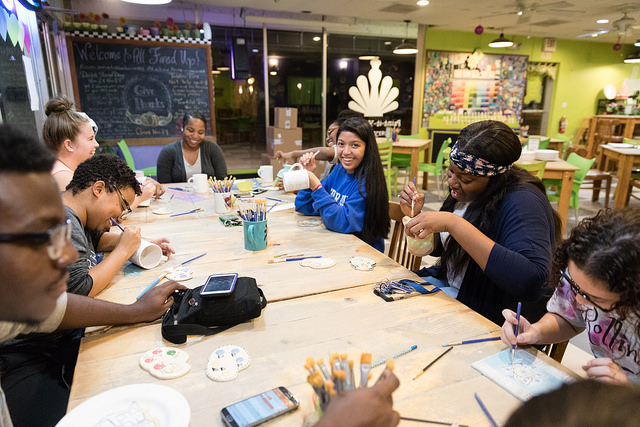Applications for Diversity Infusion Grants, which are presented by the Diversity Council, are open once again. The grant of $2,000 will be awarded to selected students developing projects with staff members.
The available grants provide an opportunity for students to create proposals in collaboration with faculty and staff in order to further the mission of increased diversity, equity, inclusion, and social justice on campus. Up to an additional $750 may be awarded for specified costs associated with the project.
Collaborations can include designing workshops, redesigning courses, or researching and drafting policy changes. Projects should also include an assessment plan. All of these focus on the school’s initiative to enhance diversity, equity and inclusion on campus. The deadline for this great opportunity is Friday, Dec. 1, 2017.
In order to be eligible for these grants students must collaborate with a full-time faculty member. Proposals will be judged on the completeness of the application, the quality of the project, the perceived value of the work, and the likelihood that the applicants can and will complete the project.
Three proposals were funded last year. “Mindful Activism and Organizing for Rollins Students,” was developed by Dr. Kathryn Norsworthy, Professor of Graduate Counseling, and Sarah Castro ‘17.
Dr. Zeynep Teymuroglu, Associate Professor of Mathematics, and Arron Nestor ‘18, completed “Mathematics for Social Justice.” Finally, “Advancing Intersectionality and Promoting Inclusive Attitudes Towards Marginalized Immigrants and Vulnerable Students,” was spearheaded by Dr. Nolan Kline, Assistant Professor of Anthropology, and Sara Ruiz Roa ‘18.
Many of the above students have enjoyed their experience and believe it has satisfied their desire to bring diversity to campus. One student in particular, Sara Ruiz Roa wanted to speak about her experience and how she benefitted from this program.
Ruiz Roa stated, “As a fellow Latina, I think people need to realize that there is this intersectionality aspect of minority life and the layers of discrimination that comes with it.” Intersectionality is a term that describes the experience of individuals who undergo varying degrees of oppression due to multiple minority identities. “I’ve experienced it, as [have] many other hispanics. So if anything is benefiting me, it is the joy of doing something that is important to not just me, but a greater number of people.”
She also commented on her advisor’s important role through this project. “As an applied anthropologist, Dr. Kline has experiences with working and helping people in the hispanic community for many years.” In addition to his experience, his work method was inspiring. “It was refreshing working with him because he has this positive and engaging personality. I have gained many experiences with him throughout our time working together, but the most important one is to never give up and there’s always another opportunity out there.”
Ruiz Roa though it was exciting to break outside of the classroom model. “Professors are great in the classroom, but sometimes learning outside of that space is as important as what we learn in there.” Furthermore, she emphasizes the opportunity aspect. “I think this program is crucial for students by giving them an outlet for change… and a foundation of experiences with social justice and event planning.”
To sum it all up, Ruiz Roa believes that diversity is the key for a better future. She stated that, “in this globalizing world, diversity and understanding each other is the only way we’ll achieve even a small resemblance of peace. The us vs. them rhetoric has become worse throughout the last couple of years and it’s just finally showing what [has] been there the entire time.”
If you are interested in diving into projects similar to Sara’s, do not hesitate to fill out the Diversity Infusion Grant application and make sure to submit by Dec. 1.







Be First to Comment